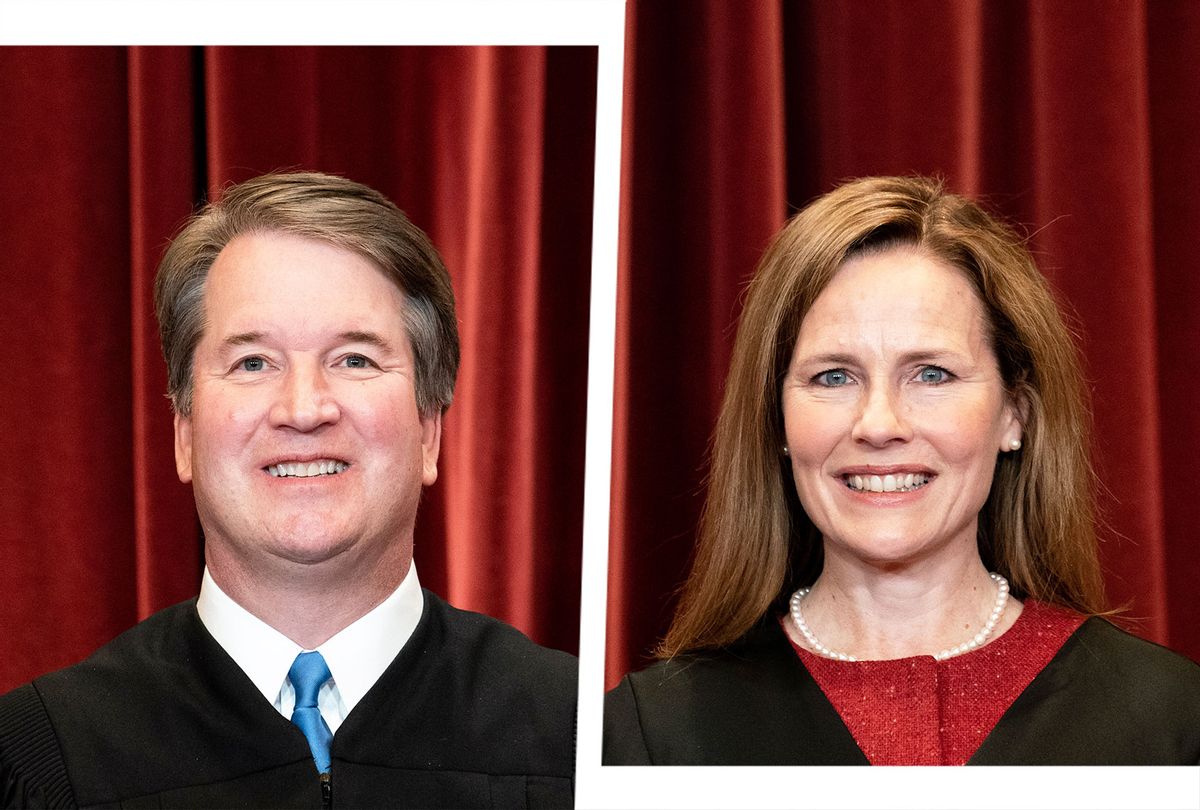The Supreme Court heard arguments on Monday on the Texas law that effectively bans most abortions. Questions from two of Trump's appointees, Justices Brett Kavanaugh and Amy Coney Barrett, signal a skepticism of the law's constitutionality.
The Texas law has a novel means of enforcement. The state does not enforce the law, but rather allows private citizens to sue anyone who abets an abortion and for them to collect $10,000 if they win, effectively placing bounties on abortions. The enforcement mechanism allows the bill to dodge judicial review. Anyone who wishes to challenge the constitutionality of the law would usually sue the state, but because private citizens are the enforcers, the law intentionally leaves it a legally gray area. Justice Kavanaugh took issue with that particular provision and pressed Texas on it.
"Can I ask you about the implications of your position for other federal rights?"
Kavanaugh referred to a brief from the Firearms Policy Coalition, which said that the law might have unintended consequences and backfire on conservatives. The firearm rights group said that gun control advocates might be able to copy the language of the abortion law and apply it to Second Amendment rights.
Texas Solicitor General Judd Stone represented Texas and told Kavanaugh that Congress would be able to pass laws bolstering rights to protect them, such as free speech rights and Second Amendment rights. Kavanaugh responded, "Well for some of those examples, I think it would be quite difficult to get legislation through Congress."
Kavanaugh also asked Stone about a hypothetical law that would allow private citizens to sue anyone that sells an AR-15 for $1 million. But Stone dodged his questioning and responded "whether or not federal court review is available does not turn on the nature of the right."
Barrett also took issue with the enforcement mechanism. The law leaves in the air whether or not citizens can bring new lawsuits against abortion providers.
"You cannot get global relief," Barrett said to Stone. She then asked him if the law was "on an individual by individual basis." Stone said Barrett was correct and that there was no limit to how many private citizens can sue.
Meanwhile, Barrett showed sympathy to the abortion providers' arguments, asking Marc Hearron, who represented the abortion providers, if the law allows a "full airing" of the providers' constitutional rights. The law forbids providers from using the right to an abortion as a defense until they have been sued.
In September, the Supreme Court denied an injunction filed by abortion providers to stop the Texas law from going into effect, which anti-abortion activists cheered. But Mary Ziegler, a law professor at Florida State University, told The New York Times that because the court agreed to listen to arguments, "someone who was not on the fence is probably back on the fence."



Shares